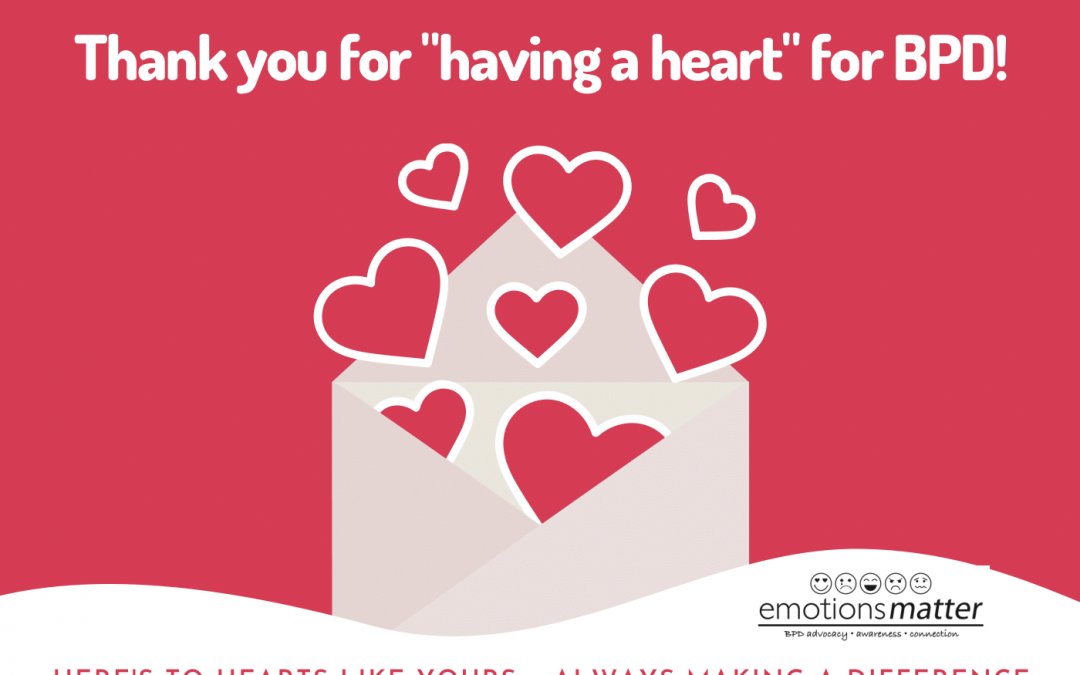Emotions Matter is a BPD advocacy organization based in New York City. They do excellent and highly effective work on behalf of people diagnosed with BPD, as well as their families and friends.
With Valentine’s Day upon us, Paula Tusiani-Eng, the founder of Emotions Matter, makes note of the critical role interpersonal relationships play in the recovery process:
Dear Friends,
When I ask professionals how they define BPD, they often cite the core of the disorder as either about identity, emotional dysregulation, or the behaviors that result when certain centers of the brain are not functioning properly.
When I ask those with lived-experience how they define BPD, they often point to their suffering in terms of relationships. Human beings are social species. Like other mammals, from the moment we are born, our natural instincts are to connect with others. We desire community in the form of friends, family, neighborhoods. schools, and workplaces. These connections inform who we are, how we relate to the world, and give our lives meaning.
Having a personality disorder like BPD impairs one’s ability to navigate the social world. It affects how one interprets social information, expresses emotions, and views oneself. This can be extraordinarily painful for those suffering from BPD – it’s often described as if one’s brain is one fire.
However, a BPD disability is not an indication of how much a person can love or be loved by others. In fact, those with BPD say they love intensely, care deeply about others, are passionate, and demonstrate increased capacity for empathy. Family members describe feelings of profound attachment to their loved ones.
In other words, those impacted by BPD have HEART. Because of their disability, sometimes they can’t express it the way they want to. But they are seeking connection and love just like everyone else.
In our BPD Connections meeting last month in New York City, we had a panel on recovery. Our lived-experience speakers and professionals commented on the power of social support. Unstable relationships — the symptom that people often struggle with the most — was also identified as an important factor that inhibits recovery.
Look at the hearts of those with BPD this Valentine’s Day. Look beyond the stigmatized BPD label, and listen with understanding and compassion. Relationships and BPD are not “dirty words.” Rather, they can building blocks for recovery when we start from a place of love.
Happy Valentine’s Day – thank you for having a “heart” for BPD!
Warm Regards,
Paula
You can learn more about Emotions Matter and some of their other supportive BPD initiatives in their February Newsletter
Signup for BPD Updates
[wpforms id=”27400″ title=”false” description=”false”]



